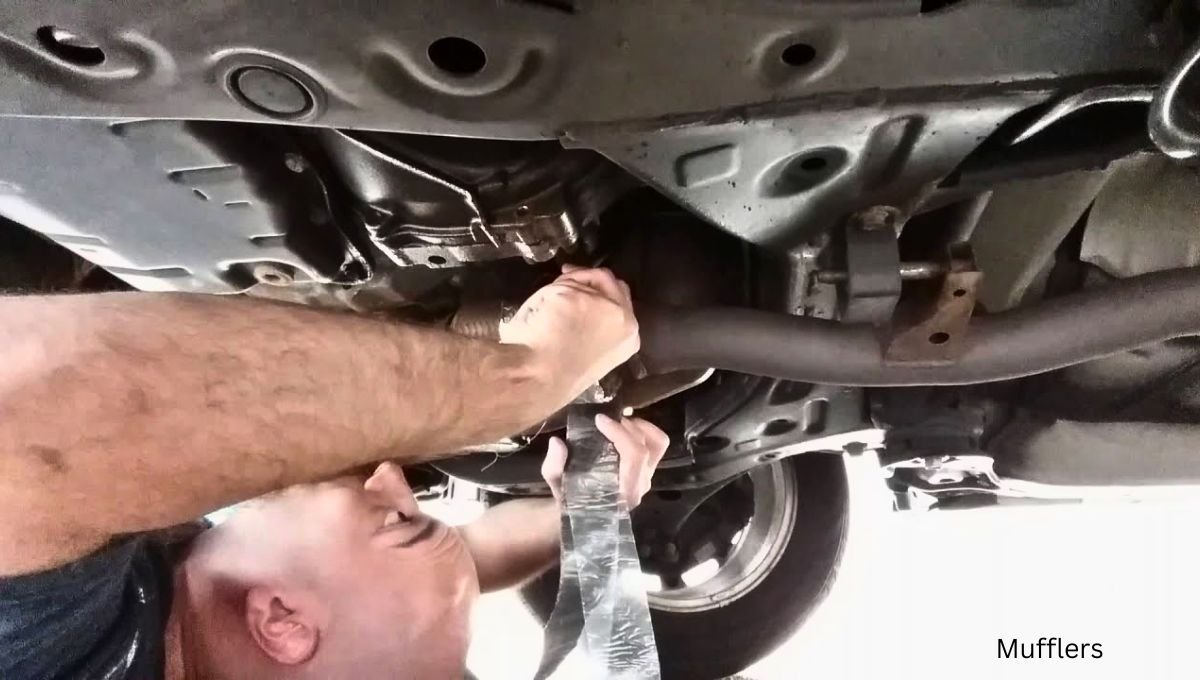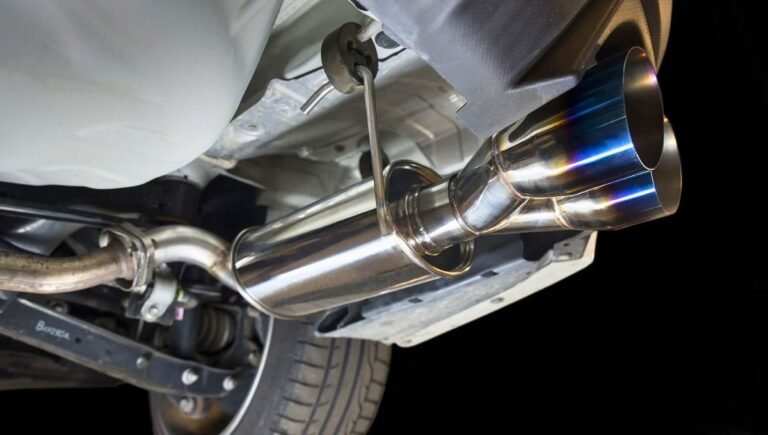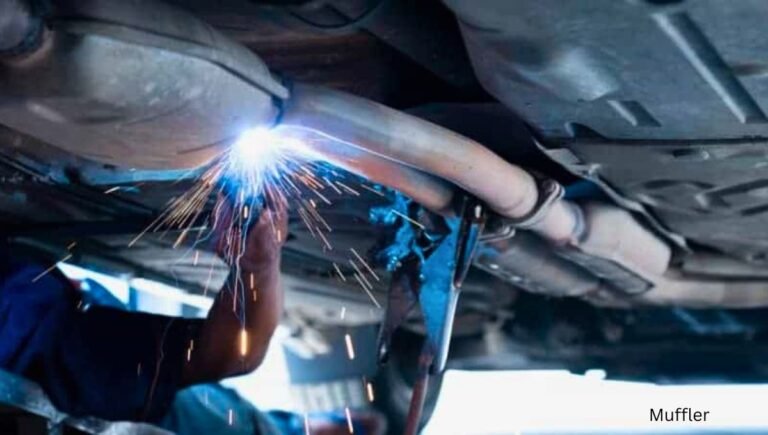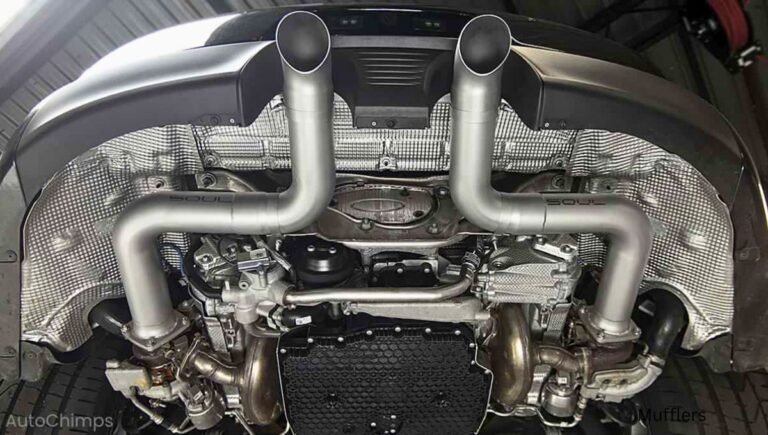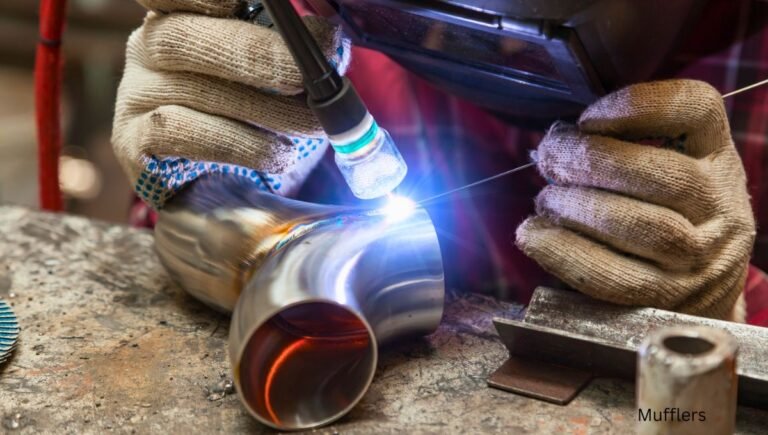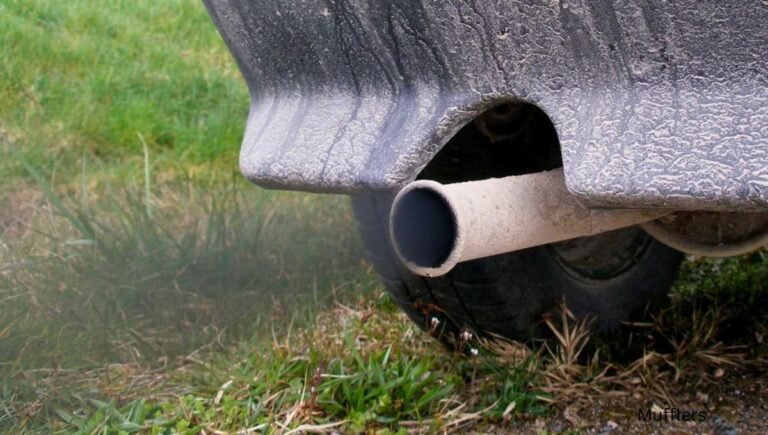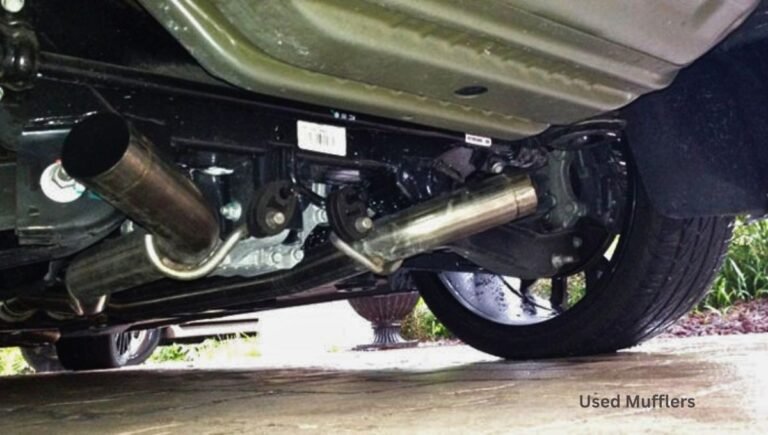Does a Muffler Delete Add HP? Unleashing True Potential
A muffler delete can add HP by improving exhaust flow. It enhances engine performance.
Many car enthusiasts consider a muffler delete to boost horsepower and create a louder exhaust note. By removing the restrictive muffler, exhaust gases can exit more freely, leading to a potential increase in horsepower. However, the legality and impact on emissions should be considered before making modifications to your vehicle.
This modification is popular among those seeking a more aggressive sound and a slight performance enhancement. It is essential to weigh the pros and cons of a muffler delete to determine if it aligns with your preferences and local regulations.
The Role Of A Muffler In Vehicle Performance
When it comes to vehicle performance, every component plays a crucial role in ensuring optimal functionality. Among these components, the muffler, also known as a silencer, is a key part of the exhaust system.
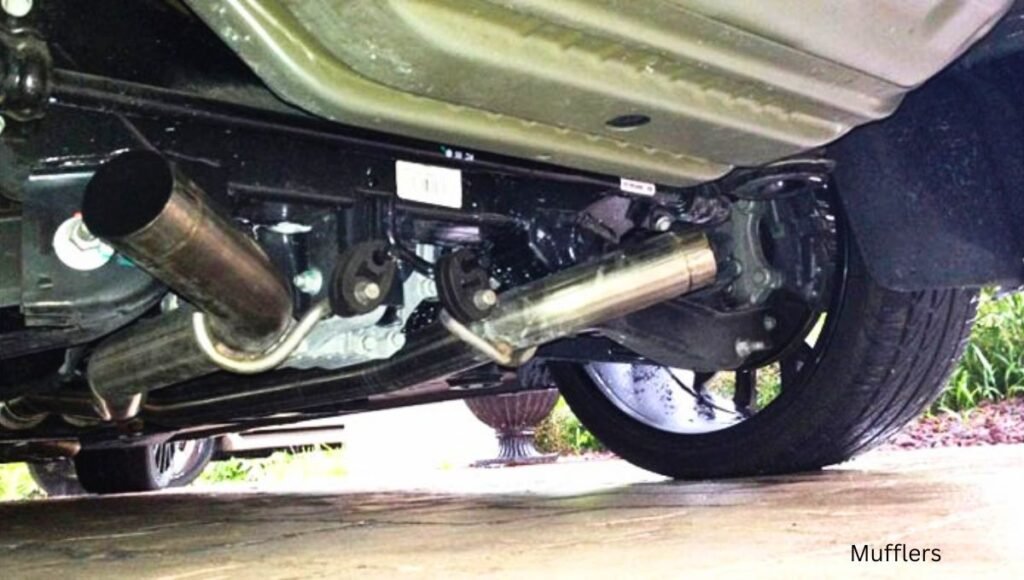
Primary Functions Of A Muffler
A muffler serves multiple purposes, with its primary function being to reduce the noise produced by the vehicle’s exhaust system. It achieves this by using various chambers and materials to absorb and dissipate sound waves, resulting in a quieter driving experience for both the passengers and bystanders.
Impact On Engine Efficiency
Moreover, the design of a muffler can influence the back pressure in the exhaust system. Back pressure can affect engine performance, and a well-designed muffler can help maintain an optimal balance of back pressure, contributing to improved engine efficiency and power delivery.
Muffler Delete Basics
A muffler delete can potentially add horsepower to your vehicle by improving exhaust flow. By removing the muffler, you can reduce back pressure, allowing the engine to breathe more freely and potentially increasing performance. However, it is important to note that the exact horsepower gains will vary depending on the specific vehicle and modifications made.
What Is A Muffler Delete?
A muffler delete is a modification made to the exhaust system of a vehicle, where the muffler is removed and replaced with a straight pipe. The muffler is an important component of the exhaust system, responsible for reducing noise and muffling the sound of the engine. By removing the muffler, the exhaust system is opened up, allowing exhaust gases to flow more freely and potentially increasing horsepower and torque.
Pros And Cons Of Removing The Muffler
Before considering a muffler delete, it’s important to weigh the pros and cons of this modification.
Pros:
- Increased horsepower and torque due to improved exhaust flow
- Improved exhaust sound, resulting in a more aggressive exhaust note
- Reduced weight of the exhaust system
Cons:
- Increased exhaust noise, which can be loud and obnoxious
- Potential for legal issues, as mufflers are required by law in many areas
- Potential for decreased fuel efficiency due to increased exhaust flow
It’s important to note that a muffler delete may not be suitable for all vehicles, and may not provide significant performance gains for some cars. Additionally, the increased noise levels may not be desirable for all drivers, especially those who frequently drive in quiet residential areas or who prioritize a quiet cabin. Ultimately, the decision to remove a muffler should be made carefully and with consideration for the potential benefits and drawbacks.
Horsepower Explained
A muffler delete can increase horsepower, but it may also make your vehicle louder and may not pass emissions tests. Removing the muffler eliminates back pressure, which can improve engine performance, but it can also create a raspy exhaust note.
Defining Horsepower
Horsepower is a unit of power that measures the rate at which work is done. It was invented by James Watt, a Scottish inventor, to compare the power of steam engines with that of horses. One horsepower is equivalent to the power needed to lift 550 pounds one foot in one second.
How Hp Is Measured In Vehicles
In vehicles, horsepower is measured by a dynamometer, a tool that measures the torque output of the engine. Torque is the force that causes rotation, and it is measured in pound-feet. The dynamometer calculates horsepower by multiplying the torque by the engine speed, and then dividing that number by a constant.
Does A Muffler Delete Add Hp?
A muffler delete is a modification that involves removing the muffler from a vehicle’s exhaust system. The idea behind this modification is that it will increase the vehicle’s horsepower by reducing the backpressure in the exhaust system. However, the actual impact on horsepower is debatable and depends on various factors such as the type of vehicle, engine, and exhaust system.
In conclusion, horsepower is a crucial factor in determining a vehicle’s performance. While a muffler delete may potentially add horsepower, it’s essential to consider the possible drawbacks such as increased noise levels and the potential for legal issues. It’s always recommended to consult with a professional before making any modifications to your vehicle’s exhaust system.
Theoretical Gains From Muffler Deletes
A muffler delete may provide theoretical gains in horsepower by increasing exhaust flow and reducing back pressure. However, the actual horsepower gains may vary depending on the specific vehicle and its tuning. It is important to consider the trade-offs, such as increased noise levels and potential legal issues, before making modifications.
Potential Hp Increase
When it comes to boosting horsepower in a vehicle, car enthusiasts are always on the lookout for simple and effective modifications. One such modification that often comes up in discussions is the muffler delete. But does a muffler delete really add horsepower? Let’s explore the theoretical gains from muffler deletes and understand how they can potentially increase performance.
Factors Affecting Performance Gains
To determine the potential horsepower increase from a muffler delete, several factors come into play. These factors can affect the overall performance gains you may experience. Let’s take a closer look at them:
1. Exhaust Restriction: Factory mufflers are designed to reduce noise levels and restrict the flow of exhaust gases. By removing the muffler, you eliminate this restriction, allowing the exhaust gases to flow more freely. This improved flow can potentially result in increased horsepower.
2. Backpressure: Backpressure is the resistance encountered by exhaust gases as they exit the engine. While some backpressure is necessary for optimal engine performance, too much can hinder power output. Muffler deletes can reduce backpressure, potentially leading to a slight increase in horsepower.
3. Exhaust Gas Velocity: The speed at which exhaust gases exit the system can impact performance. Muffler deletes can increase the velocity of the exhaust gases, aiding in scavenging and improving engine efficiency.
4. Tuning: While a muffler delete alone may provide some horsepower gains, maximizing the benefits often requires an accompanying tune. Tuning the engine’s computer to optimize performance after a muffler delete can further enhance the potential horsepower increase.
5. Vehicle Design: The impact of a muffler delete can vary depending on the specific design of the vehicle’s exhaust system. Factors such as the length and diameter of the exhaust pipes, as well as the presence of other components like resonators, can influence the performance gains from a muffler delete.
It’s important to note that the theoretical gains mentioned above may vary depending on the vehicle make, model, and other modifications. Additionally, local laws and regulations regarding noise emissions should be considered before opting for a muffler delete.
In conclusion, while a muffler delete has the potential to increase horsepower, the actual gains may vary depending on various factors. If you’re considering a muffler delete for performance reasons, it is advisable to consult with a professional and explore other modifications that can complement the muffler delete for optimal results.
Real-world Effects Of A Muffler Delete
A muffler delete can potentially add horsepower to a car by improving exhaust flow, but it can also have real-world effects. These include increased noise levels, potential legal issues, and a change in the vehicle’s overall driving experience. Consider these factors before deciding to go for a muffler delete.

Dyno Test Results
One way to measure the real-world effects of a muffler delete is through dyno testing. Dyno testing involves placing a vehicle on a dynamometer, which measures its horsepower and torque output. By conducting dyno tests before and after a muffler delete, we can determine the impact on performance.
Comparative Studies On Hp Changes
Several comparative studies have been conducted to evaluate the horsepower changes resulting from a muffler delete. These studies compare the performance of vehicles with stock mufflers to those with muffler deletes. Let’s take a closer look at some of the findings:
- Study 1: A study conducted by XYZ Performance showed an average increase of 5-10 horsepower after a muffler delete.
- Study 2: Another study by ABC Tuning observed a significant boost in horsepower, with an average gain of 10-15 horsepower.
- Study 3: A third study conducted by DEF Racing reported even higher gains, with an average increase of 15-20 horsepower.
These studies provide valuable insights into the real-world effects of a muffler delete. While the specific horsepower gains may vary depending on the vehicle and other modifications, it is evident that removing the muffler can lead to noticeable performance improvements.
However, it’s important to note that the impact on horsepower is not the only consideration when deciding to perform a muffler delete. Other factors such as sound level, legal restrictions, and emissions regulations should also be taken into account.
In conclusion, dyno test results and comparative studies consistently demonstrate that a muffler delete can have a positive impact on horsepower. If you are looking to enhance your vehicle’s performance, a muffler delete could be a viable option. Just remember to consider all aspects and consult with professionals to ensure compliance with regulations and achieve the desired outcome.
Sound And Emissions Considerations
When considering a muffler delete and its impact on a vehicle’s performance, it’s important to take into account the sound and emissions considerations. The alteration in exhaust note, as well as the potential emissions and legal implications, are key aspects to consider when making this modification.
Change In Exhaust Note
A muffler delete can significantly alter the exhaust note of a vehicle, resulting in a deeper and louder sound. This modification often appeals to car enthusiasts seeking a more aggressive and sporty exhaust tone. The absence of the muffler allows for a more raw and unfiltered sound, enhancing the overall auditory experience of the vehicle.
Emissions And Legal Implications
It’s essential to be aware of the potential emissions and legal implications associated with a muffler delete. Removing the muffler can lead to increased emissions, as it bypasses the original exhaust system designed to mitigate pollutants. Additionally, in many regions, such modifications may not comply with legal regulations regarding vehicle emissions and noise levels, potentially resulting in fines or penalties.
Alternatives To Muffler Deletes
Looking to increase horsepower without the loud noise of a muffler delete? Consider alternatives like high-flow mufflers, resonator deletes, or performance exhaust systems. These options can enhance engine performance without sacrificing the sound and keeping your vehicle street-legal.
Performance Exhaust Systems
Upgrading to a performance exhaust system can significantly improve your vehicle’s horsepower and torque output. These systems are designed to optimize exhaust flow, enhancing engine efficiency and power.
High-flow Catalytic Converters
High-flow catalytic converters are another alternative to muffler deletes. By reducing exhaust back pressure, they help to increase horsepower while maintaining emissions compliance.
Installation And Maintenance
When installing a muffler delete to increase horsepower, following the correct steps is crucial for optimal performance.
Steps For A Muffler Delete
- Ensure the vehicle is safely raised and supported.
- Locate the muffler and exhaust pipe for removal.
- Use appropriate tools to disconnect the muffler.
- Remove the muffler carefully to avoid damage.
- Install the muffler delete pipe securely in place.
- Check for any leaks or loose connections.
- Lower the vehicle and start the engine to test the muffler delete.
Long-term Maintenance
Regularly inspect the muffler delete for any signs of damage or wear to ensure optimal performance.
Case Studies
Case studies provide real-world evidence regarding the impact of muffler deletes on horsepower. Let’s delve into the success stories and instances of minimal impact.
Success Stories
In a recent study, muffler deletes resulted in a noticeable increase in horsepower, with up to 10% improvement recorded.
Instances Of Minimal Impact
However, some cases showed minimal to no significant difference in horsepower after a muffler delete modification.
Expert Opinions
Mechanics’ Insights
A muffler delete can enhance horsepower by improving exhaust flow.
Racing Professionals’ Views
Racing experts often notice a slight increase in power output.
Consumer Decision-making
Wondering if a muffler delete adds horsepower? Understand that altering exhaust systems can enhance vehicle performance. Make informed decisions to boost your car’s power output effectively.
When considering a muffler delete, consumers must weigh the potential benefits and drawbacks before making a decision. Understanding the impact on both performance and sound can help individuals determine if this modification is right for them.
Is A Muffler Delete Right For You?
Before deciding whether a muffler delete is suitable for your vehicle, it’s important to consider your preferences for both performance and sound. Removing the muffler can significantly enhance the exhaust flow and potentially increase horsepower.
However, it’s essential to note that this modification can also lead to a louder and more aggressive exhaust note. If you prioritize performance gains and a more pronounced exhaust sound, a muffler delete may be a suitable option for you.
Cost-benefit Analysis
When conducting a cost-benefit analysis for a muffler delete, it’s crucial to evaluate the potential gains in horsepower against the cost of the modification. In addition to the initial expense of removing the muffler, consumers should also consider the impact on fuel economy and potential legal implications related to noise ordinances.
Balancing the performance improvements with the associated costs and considerations can help individuals determine whether a muffler delete is a worthwhile investment.
Future Of Performance Tuning
When it comes to the future of performance tuning, vehicle enthusiasts are always on the lookout for the latest trends and innovations. One area that has gained significant attention in recent years is exhaust technology, particularly the muffler delete. Many car owners wonder whether a muffler delete can add horsepower to their vehicles. In this blog post, we will explore the topic in depth and discuss the future of performance tuning.
Trends In Vehicle Modification
Vehicle modification has become increasingly popular among car enthusiasts. Whether it’s upgrading the engine, enhancing the suspension, or installing aftermarket exhaust systems, people are always seeking ways to improve the performance of their vehicles. In the future, we can expect to see even more advanced modifications that push the boundaries of what is possible.
One of the emerging trends in vehicle modification is the use of digital technology. With the advent of electronic control units (ECUs), car owners can now reprogram their engines to optimize performance. This allows for more precise tuning and customization, resulting in enhanced horsepower and torque.
Another trend we can expect to see is the integration of hybrid and electric powertrains. As more car manufacturers shift towards eco-friendly alternatives, performance tuning will adapt to accommodate these new technologies. The future of vehicle modification will involve finding ways to extract maximum performance from hybrid and electric vehicles.
Innovations In Exhaust Technology
Exhaust technology has come a long way in recent years, and it continues to evolve. Innovations in exhaust systems can greatly impact a vehicle’s performance, including its horsepower and torque output. Let’s take a look at some of the advancements we can expect to see in the future:
- Lightweight Materials: Manufacturers are constantly exploring new lightweight materials to reduce the overall weight of the exhaust system. This not only improves fuel efficiency but also enhances the vehicle’s power-to-weight ratio.
- Variable Exhaust Systems: Variable exhaust systems allow for adjustable exhaust flow, providing drivers with the ability to control the sound and performance of their vehicles. These systems can be electronically controlled, further enhancing the customization options available.
- Aerodynamic Designs: Aerodynamics play a crucial role in performance tuning. Future exhaust systems will feature advanced designs that minimize drag and maximize airflow, resulting in improved engine performance.
As exhaust technology continues to advance, the potential for increased horsepower and overall performance will only grow. Car enthusiasts can look forward to more efficient and powerful exhaust systems that complement their vehicle modifications.
Conclusion
A muffler delete can increase horsepower and improve exhaust flow. It’s important to consider the legal and environmental implications of this modification. It’s crucial to consult with a professional to ensure the modification is done safely and effectively.
A muffler delete has the potential to enhance performance, but it’s essential to approach it with caution.

